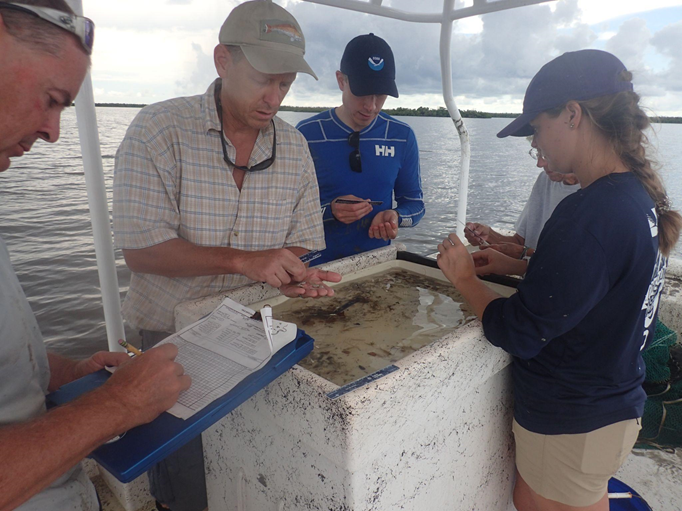
An NCCOS-led research team found that anticipated changes in freshwater flow following the Picayune Strand Restoration Project in southwest Florida may not affect juvenile fish communities in downstream estuaries as much as previously expected.
The team’s analysis of a 20-year, multi-estuary, bottom trawl and water quality data set collected by the Rookery Bay National Estuarine Research Reserve suggests that altered environmental conditions following watershed restoration will be well within the tolerance of the dominant fish species.
Study findings indicate that short-term patterns in salinity are relatively less important in this system compared to seasonal aspects of water temperature. Even though these are highly modified watersheds with dramatically different salinities in the estuaries, a primary influence on fish communities appears to be simple seasonal patterns in spawning and recruitment of the dominant species, which is best correlated with temperature.
The Picayune Strand Restoration Project, led by the South Florida Water Management District and the U.S. Army Corps of Engineers, aims to restore natural water flow across 85 square miles of southwest Florida that were drained in the early 1960s for extensive residential development that never occurred. The project is expected to improve water quality in the region’s estuaries and restore wetland habitats needed by threatened and endangered species, such as the wood stork and the Florida panther.
As human populations in coastal watersheds continue to grow, understanding the impact of altered freshwater flow to estuaries will be a top information need for coastal managers who must balance diverging demands on freshwater resources.
